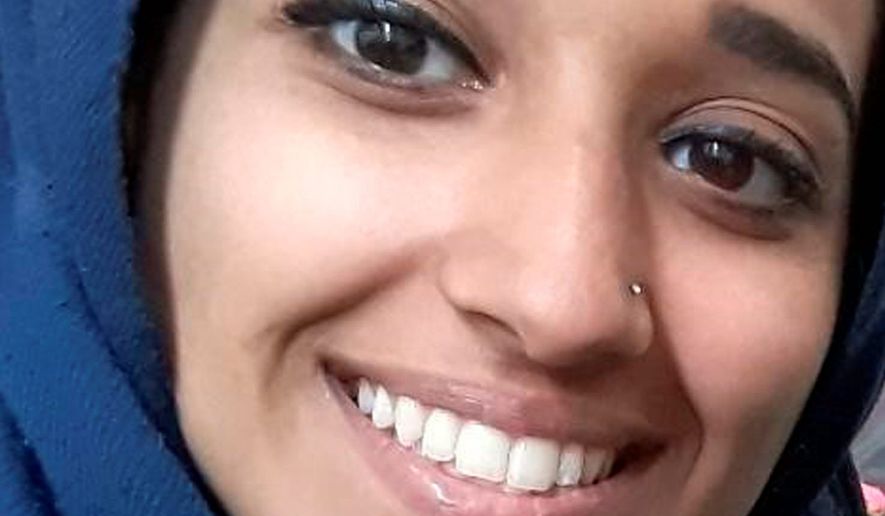WASHINGTON — A terrorism researcher has expressed concern to a federal court about the health of a toddler whose U.S.-born mother joined the Islamic State group and is now embroiled in a legal battle over whether the two of them can come to the United States.
Anne Speckhard, director of the International Center for the Study of Violent Extremism, wrote in a letter submitted to the court Friday that the 20-month-old son of Hoda Muthana was “sickly” and “lethargic” during a recent meeting at a detention camp in Syria. She said the toddler appeared to have chronic bronchitis and “is not behaving like a healthy, normal young child.”
Speckhard also noted that Muthana, who fled the Islamic State group as the group’s last stronghold crumbled late last year, and her son must endure harsh conditions without access to adequate medical care or medicine. The researcher recommends that the toddler be allowed to join his grandparents in the United States even if he must be separated from his mother while her legal case is decided.
“As a sickly and unvaccinated child, he is also much more vulnerable to any of the diseases that may spread through the camp of other vaccinated children,” she wrote. “He could easily die there.”
She notes that mothers and children have previously died in camps. In March, the infant son of 19-year-old Shamima Begum, who ran away from Britain at age 15 to join the Islamic State group, died at a refugee camp in Syria.
Speckhard’s letter adds to a swelling case file in a suit filed by the woman’s father, Ahmed Muthana, seeking to force the U.S. government to allow his daughter to return to the United States with the child. The researcher says she wrote the letter at his request.
The U.S. has determined that the 24-year-old Muthana isn’t a citizen and that her American passport was issued by mistake because her father was a Yemeni diplomat to the United Nations when she was born in New Jersey. Children of diplomats are not entitled to birthright citizenship because they and their parents aren’t subject to U.S. law.
President Donald Trump said on Twitter in February that he had instructed Secretary of State Mike Pompeo not to allow her back into the U.S., though the decision to revoke her passport had been made under President Barack Obama.
Ahmed Muthana argues he was no longer a diplomat at the time of her birth so she was automatically entitled to citizenship.
He has provided documents showing that his diplomatic status ended nearly two months before her birth in October 1994. The U.S. says it wasn’t notified that his status had changed until February 1995, apparently because of a delay in reporting it by the U.N. That discrepancy is one of the key issues facing the federal court, which is expected to decide the case within months.
The father is also asking the court to allow him to send money and assistance to his daughter and grandson without running afoul of a U.S. law that prohibits providing financial support to the Islamic State group.




Please read our comment policy before commenting.